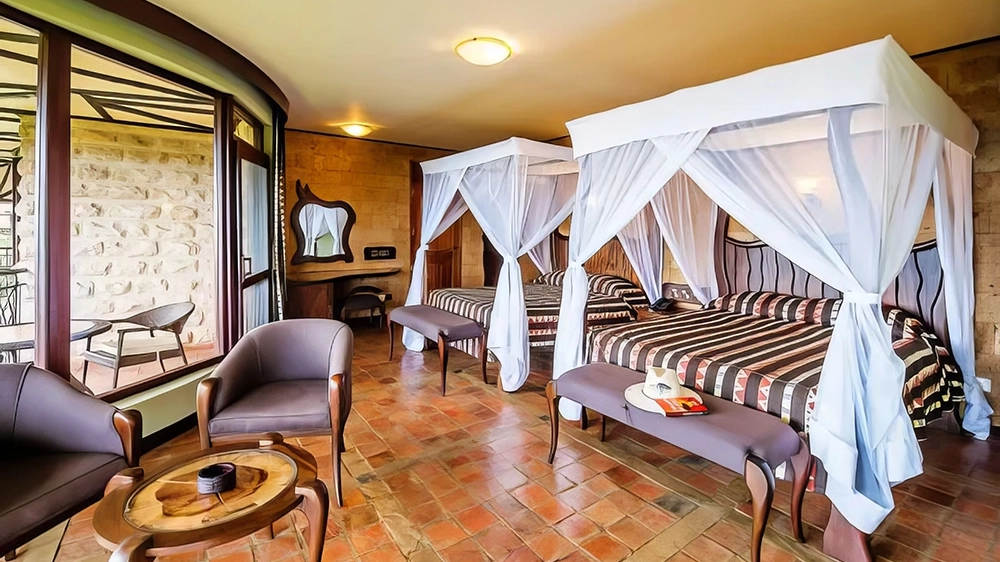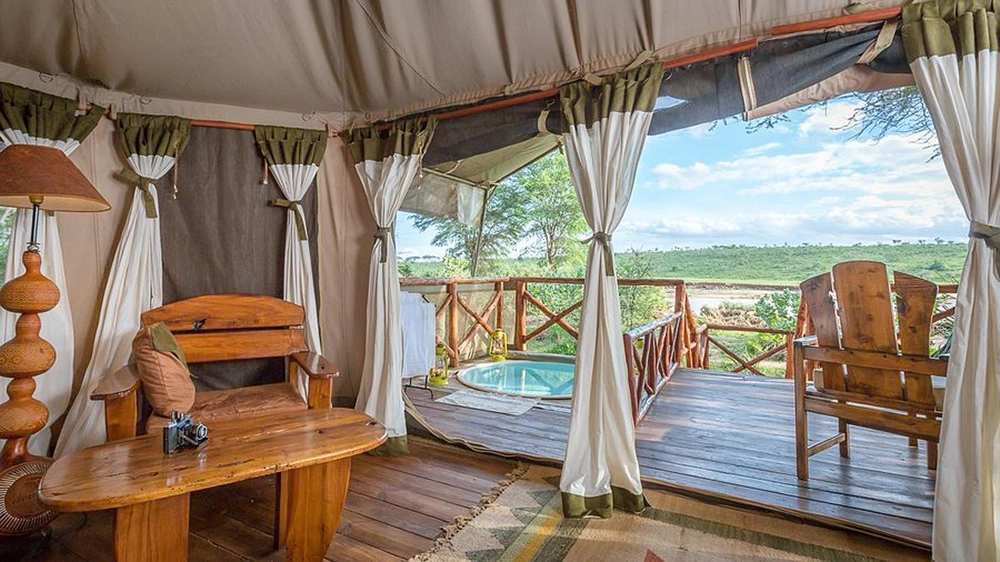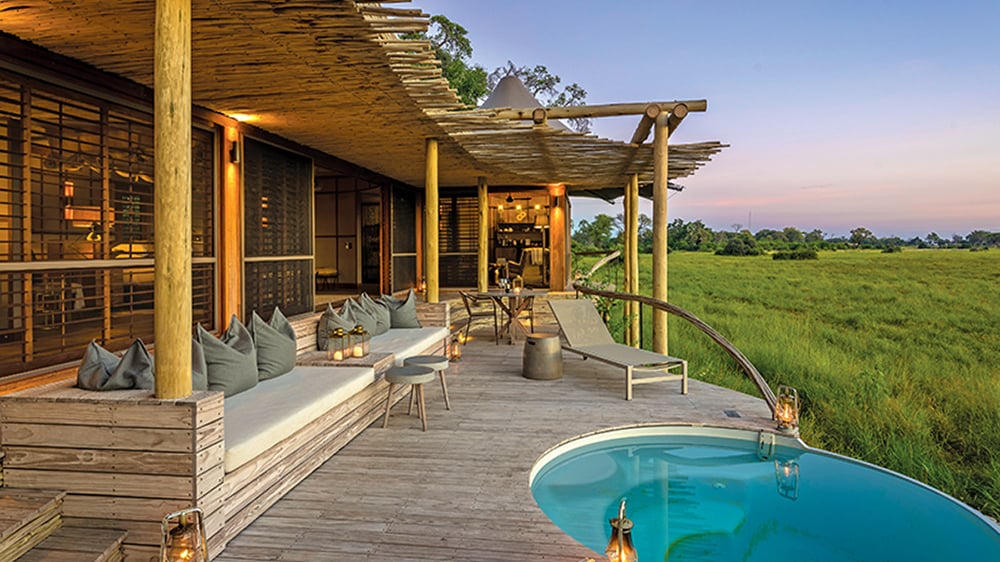Prepare For Your Safari Adventure
Essential tips and information for a seamless experience
Let the Excitement Begin!
The preparation for your adventure should be just as exciting as the trip ahead. You also want to feel well-prepared.
That’s why we created a preparation cheat sheet with everything you will need to consider before boarding your flight.
Ready, Set, Go!

Health and Safety

Weather and Climate

Packing Essentials

Local Culture and Etiquette

Travel Documents

Travel Insurance

Money and Currency

Accomodation Details
Health and Safety
Your health and safety are our top priority. While we do not offer medical advice, we
encourage you to visit the World Health Organization (WHO) and the Centers for
Disease Control and Prevention (CDC) for guidelines.

Vaccination Requirements
![]() Yellow Fever vaccination certificate (for entry into Kenya and Tanzania).
Yellow Fever vaccination certificate (for entry into Kenya and Tanzania).
![]() Hepatitis A and B, Typhoid, and Tetanus vaccinations are highly recommended.
Hepatitis A and B, Typhoid, and Tetanus vaccinations are highly recommended.
Please consult with your healthcare provider about Malaria prophylaxis and any other personalized advice.

Medications
![]() Anti-Malaria Prescription: Essential, please consult with your doctor for the best prescription for your travel itinerary.
Anti-Malaria Prescription: Essential, please consult with your doctor for the best prescription for your travel itinerary.
![]() Prescription Medications: Bring any prescription in its original packaging.
Prescription Medications: Bring any prescription in its original packaging.
![]() Over-the-counter Medications: Pain relievers, antihistamines, anti-diarrheal medicines.
Over-the-counter Medications: Pain relievers, antihistamines, anti-diarrheal medicines.

Safe Hygiene Practices
![]() Always wash your hands before eating.
Always wash your hands before eating.
![]() Use hand sanitizer when soap and water are unavailable.
Use hand sanitizer when soap and water are unavailable.
![]() Drink only bottled water (even when brushing your teeth).
Drink only bottled water (even when brushing your teeth).
![]() Opt for well-cooked meals and avoid raw or uncooked foods (avoid street vendors).
Opt for well-cooked meals and avoid raw or uncooked foods (avoid street vendors).


Packing List
What Should I Pack?
- Essentials: travel documents, medications
- Comforts: sunglasses, sunblock, hat, binoculars
- Necessities: Breathable clothing, toiletries

Important Travel Documents

Passport
Make sure your passport is up to date and learn how to get one fast. Needed for entry into most African countries.
Make sure your passport:
has enough blank pages
is valid for 6 months after arrival
Money Management
When planning your safari adventure in Africa, managing your money safely and efficiently is crucial.
Here’s what you need to know about the local currencies and best practices:

Botswana
Botswana Pula (BWP)

Uganda
Ugandan Shilling (UGX)

Zimbabwe
US Dollar (USD) is the most commonly used currency.

Tanzania
Tanzanian Shilling (TZS)

Kenya
Kenyan Shilling (KES)
Safe Money Practices
By following these safe money practices, you can enjoy your safari adventure with peace of mind, knowing that your finances are well managed.
We recommend exchanging your money at ATMs in the airports once you arrive in Africa. This often provides the best exchange rates compared to currency exchange counters. Before you travel, inform your bank of your plans to avoid any disruptions in service. It’s a good idea to withdraw enough local currency to cover your immediate needs, such as transportation, tips, and small purchases.
While local currency is necessary for everyday transactions, it’s also wise to carry some US dollars. In many countries, particularly Zimbabwe, US dollars are widely accepted and sometimes even preferred. Additionally, US dollars can be useful for tipping or making payments in places where card payments aren’t accepted.
Credit cards are accepted in most lodges, hotels, and larger establishments. However, be cautious about where you use them to avoid potential fraud. It’s also a good idea to carry a backup card in case of any issues.
While it’s essential to have some cash on hand, avoid carrying large sums. Store most of your money in a safe place, such as a hotel safe, and only take what you need for the day.
When handling money, be discreet to avoid drawing attention. This is especially important in crowded areas like markets or busy streets.
Keep a record of your expenses and monitor your accounts regularly to ensure there are no unauthorized transactions.
When withdrawing or exchanging money, try to get a mix of denominations. Small bills can be very useful for tipping and making smaller purchases, especially in rural areas where change might not be readily available.
It’s a good idea to have a small amount of emergency cash stored separately from your main stash. This could be useful if you lose your wallet or face any unexpected expenses.
Weather and Climate
Packing the right clothing for your safari is crucial to staying comfortable throughout your adventure.
Here’s what you should consider for each season, along with temperature ranges:

The weather can vary but is typically warm during the day and cooler at night.

Sunglasses are necessary to shield from the strong African sun.
![]() Long Rains (March to May): 24-28°C (75-82°F)
Long Rains (March to May): 24-28°C (75-82°F)
Light waterproof jacket, breathable layers, long sleeves to protect against mosquitoes.
![]() Short Rains (Late October to December): 25-29°C (77-84°F)
Short Rains (Late October to December): 25-29°C (77-84°F)
Lightweight rain jacket, moisture-wicking clothing, and light pants.
![]() Dry Seasons (June to October, January to February): 22-27°C (72-81°F)
Dry Seasons (June to October, January to February): 22-27°C (72-81°F)
Warm fleece or jacket for cool mornings and evenings, light clothing for daytime.
![]() Long Rains (March to May): 24-29°C (75-84°F)
Long Rains (March to May): 24-29°C (75-84°F)
Waterproof jacket, light long-sleeve shirts, and trousers for mosquito protection.
![]() Short Rains (November to December): 26-30°C (79-86°F)
Short Rains (November to December): 26-30°C (79-86°F)
Lightweight rain jacket, comfortable layers, and quick-dry clothing.
![]() Dry Seasons (June to October, January to February): 20-27°C (68-81°F)
Dry Seasons (June to October, January to February): 20-27°C (68-81°F)
Warm jacket or sweater for mornings and evenings, breathable layers for daytime.
![]() Rainy Seasons (March to May, September to November): 23-28°C (73-82°F)
Rainy Seasons (March to May, September to November): 23-28°C (73-82°F)
Waterproof jacket, long sleeves, and trousers for protection against rain and insects.
![]() Dry Seasons (June to August, December to February): 25-30°C (77-86°F)
Dry Seasons (June to August, December to February): 25-30°C (77-86°F)
Light jacket for cooler mornings, comfortable and breathable clothing for day hikes.
![]() Dry Season (May to October): 20-30°C (68-86°F)
Dry Season (May to October): 20-30°C (68-86°F)
Warm jacket or fleece for chilly mornings, light layers for daytime warmth.
![]() Wet Season (November to April): 25-35°C (77-95°F)
Wet Season (November to April): 25-35°C (77-95°F)
Lightweight rain jacket, breathable and quick-dry clothing.
![]() Dry Season (May to October): 20-28°C (68-82°F)
Dry Season (May to October): 20-28°C (68-82°F)
Warm jacket for cold mornings and evenings, light and comfortable clothing for daytime.
![]() Rainy Season (November to March): 25-32°C (77-90°F)
Rainy Season (November to March): 25-32°C (77-90°F)
Light rain jacket, moisture-wicking layers, and long sleeves to protect against insects.
Travel Insurance
Essential Coverages:

Medical
- Illnesses
- Treatments
- Evacuations

Trip Cancellations
- For any unforeseen circumstances

Personal Belongings
- Coverage for lost or stolen items

Travel Delays
- Reimbursement for extra cost due to delays
Tips
- Understand all your coverage details and exclusions
- Choose a policy within 24-hour emergency assistance
Accommodation
Comfort levels to fit your preferences

Classic
Perfect for comfort, value, and an authentic safari feel.
![]()
Comfortable lodges and camps with private en-suite bathrooms
![]() Stylish but modest décor and well-maintained rooms
Stylish but modest décor and well-maintained rooms
![]() Amenities may include swimming pools and cozy lounges
Amenities may include swimming pools and cozy lounges
![]() Great balance of affordability and comfort
Great balance of affordability and comfort
![]() Ideal for travelers who want a relaxed, authentic experience without overspending
Ideal for travelers who want a relaxed, authentic experience without overspending

Luxury
A step up in elegance, space, and service.
![]() Spacious rooms or tents with beautifully designed en-suite bathrooms
Spacious rooms or tents with beautifully designed en-suite bathrooms
![]() Refined architecture and upscale furnishings
Refined architecture and upscale furnishings
![]() Amenities like infinity pools or scenic-view pools
Amenities like infinity pools or scenic-view pools
![]() Gourmet dining and elevated service touches
Gourmet dining and elevated service touches
![]() Ideal for guests seeking sophistication, exclusivity, and added comfort
Ideal for guests seeking sophistication, exclusivity, and added comfort

Ultra Luxury
The highest tier—ultimate indulgence and exclusivity.
![]() Lavish suites featuring private plunge pools and premium décor
Lavish suites featuring private plunge pools and premium décor
![]() Access to spa treatments and stunning panoramic views
Access to spa treatments and stunning panoramic views
![]() Exceptional service, often including private butlers
Exceptional service, often including private butlers
![]() Tailored gourmet meals and personalized guest experiences
Tailored gourmet meals and personalized guest experiences
![]() Frequently includes safari flights for seamless travel
Frequently includes safari flights for seamless travel
![]() Best for travelers seeking the most extraordinary, high-end safari experience
Best for travelers seeking the most extraordinary, high-end safari experience
Testimonials & Reviews




Family Adventure


Solo Explorer's Adventure


Family Adventure


Family Adventure


Family Adventure


Family Adventure


Family Adventure


Family Adventure


Family Adventure


Family Adventure
Start Your Journey.
Get a Free Custom Quote.
Tell us a few details — we’ll send your custom quote soon.
Want to speak with our safari experts? Schedule a Call

